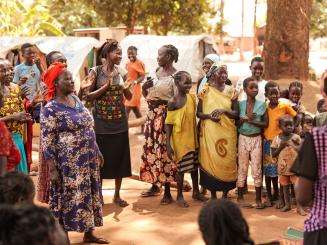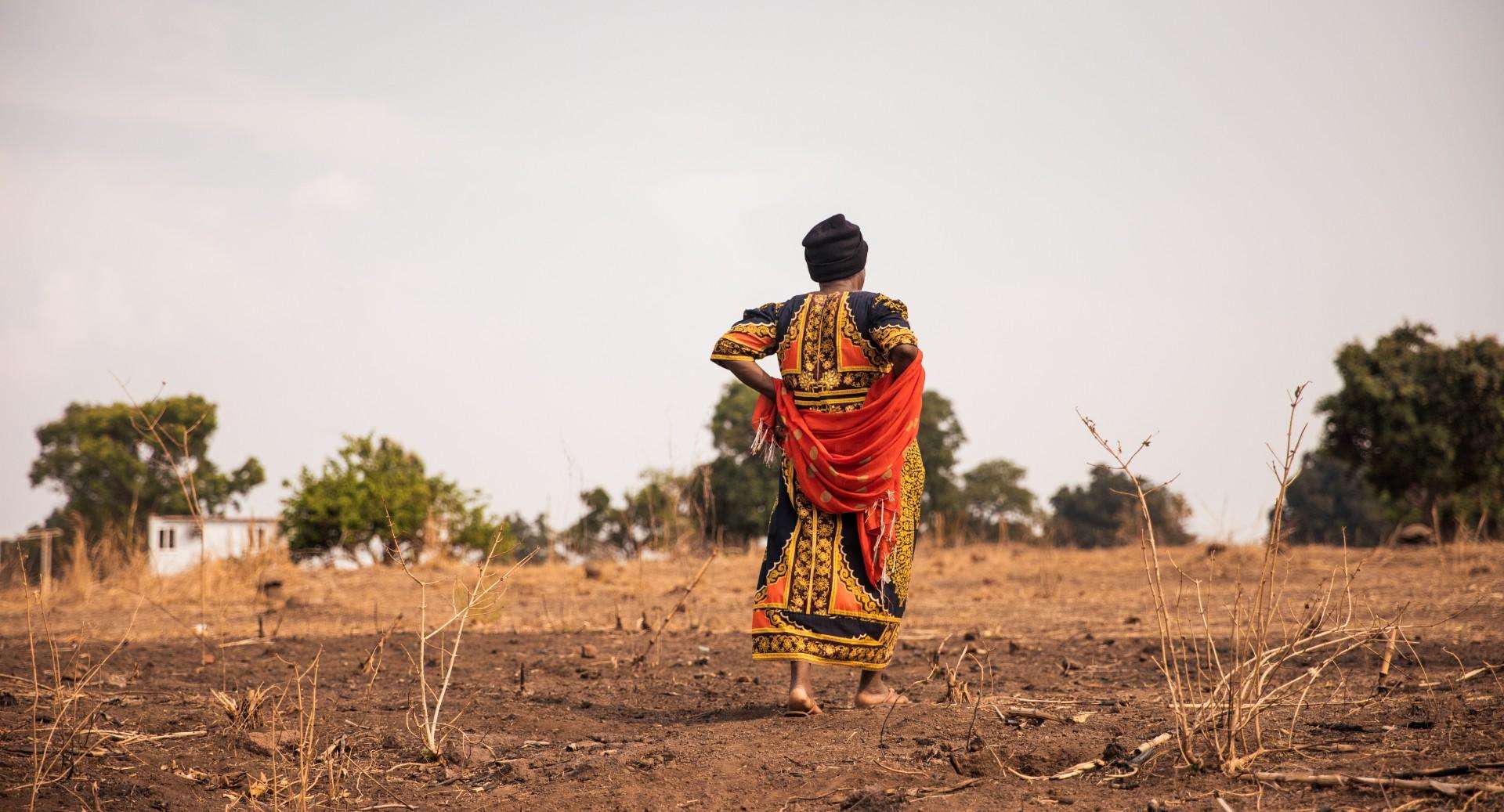Flashes of intense conflict in Tambura, in South Sudan's Western Equatoria state, have had long-lasting impacts on the community here. Doctors Without Borders/Médecins Sans Frontières (MSF) launched emergency response operations in December 2021 to provide a range of essential health care services, including vaccinations and maternity care. A weekly cargo plane brought in supplies for the community, and MSF also provided clean water, and began rebuilding and refurbishing the hospital. However, after all the trauma the community had experienced, one of the biggest needs was mental health services.
Violence around Tambura began in early 2021 and escalated significantly from June to September. The conflict was fought largely along ethnic lines. An estimated 80,000 people fled their homes and many people were killed or died from other causes as a result of the conflict.
A retrospective mortality survey carried out by MSF in March 2022 found a catastrophic loss of life—an average of 5.5 deaths per 10,000 people per day over a period of nine months. Many people living in displacement camps still haven’t found their loved ones. Others know their family members were killed but feel too unsafe to retrieve their bodies.
The looting and destruction of the community's only hospital meant that people had no access to medical care. Mothers had no safe spaces to deliver their babies, and children had nowhere to receive vaccinations against infectious diseases.
Even after much of the fighting subsided, people displaced in and around Tambura continued to live in fear. Many of them had experienced and witnessed extreme violence, and still faced enormous uncertainty about the future. Without an appropriate space to process these experiences, trauma symptoms can get worse and in some cases show up as physical ailments.
August 29 01:12 PM
Healing invisible wounds in South Sudan
Survivors cope with the mental health impacts of conflict in Tambura.
Read more
Mental health consequences of conflict
“The most common symptoms we see in people are stress, sadness, and grief, as well as anxiety about their future and returning home—as some people had their houses robbed and burned, so now have nothing,” said Ariadna Alexandra Pérez Gudiño, MSF mental health activity manager “Without really discussing their experiences, without coming to terms with what happened to them, this can provoke a physical response from the body. In psychological terms, this is like having an open wound that goes untreated.”
To address the mental health needs of people in Tambura, MSF decided to provide comprehensive, community-based mental health services. Working with a team of four counselors from Tambura, Pérez Gudiño began by discussing expectations with her team: “There is a collective experience here—everyone has been displaced, they have witnessed violence. We are not going to change their experiences and the reality they are living in—our objective is to help people process what’s happened, and support them with coping mechanisms to help reduce their suffering.”
The mental health team began working in and around the displacement camps to discuss the mental health problems many people were experiencing, to normalize speaking about them, and provide outlets for those in need of support. This included one-on-one counseling sessions, referral pathways for those in need of further treatment or medication, and group psychosocial health sessions.
Coping with loss and grief
“Six of my family members were killed in this conflict, including my husband, son, brother and nephew. After I heard the news, I wasn’t in my right mind—I lost sense of who I am,” said Severna Joseph, who is one of many people in the displacement camp in Tambura who have lost loved ones. “I went to MSF for some counseling sessions and after a while I started to find my feet again. The mental health counseling with MSF has been a big help. I am still struggling and things are not perfect, but now I am beginning to understand what happened to me. I am beginning to work through these things, and for the first time in a while, I now have some hope for the future.”
The psychosocial group sessions included activities such as making bracelets, drawing, singing, and dancing. The team also encouraged people to maintain social connections that many of them had already developed, such as playing football or chatting with friends over coffee or tea. When people are confined to heavily populated displacement camps, psychosocial activities like these can be a lifeline by relieving stress and grief and helping people to collectively process trauma.
South Sudan continues to experience the consequences of conflicts in multiple regions where people are displaced or fearful for their security. Between January to July 2022, MSF conducted more than 11,500 individual and group mental health consultations in seven locations in the country.
MSF teams completed their work in Tambura in June 2022 after handing over activities to other health care providers.
We continue to monitor the situation in Western Equatoria state and remain prepared to respond again if conditions deteriorate and emergency needs arise. We recently started an emergency response in Magwi county in Eastern Equatoria state where fighting escalated earlier this year, displacing tens of thousands of people. Our team integrated mental health care and psychosocial support in our health care services, and provided access to clean water and sanitation facilities for more than 100,000 people.




